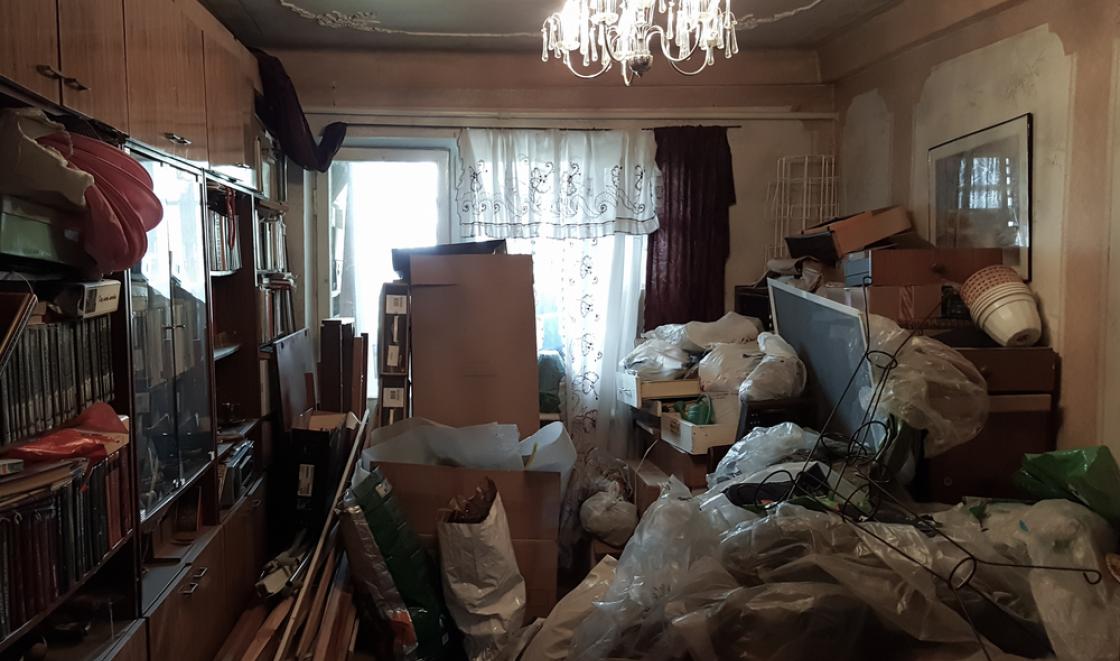Study aims
The overall aim of this exploratory study is to understand the role of professional decluttering services as part of interventions with people who hoard who are known to adult social care.
Within this the research team have three objectives:
- To capture what is known from academic and other literature/websites about professional decluttering services.
- To understand the views of people with hoarding behaviours and/or their families on their experiences of decluttering support from professional services
- To identity models of practice between local authorities and private decluttering services including:
- How decluttering services are chosen/commissioned
- The qualifications and expertise of the professional declutterer
- What the service provision entails, including methods of working, charges, and management.
How the project will be carried out
There are three stages to the research:
- A review that will scrutinise local authority hoarding guidance documents, and also bring together any international academic literature on hoarding and decluttering and other literature on decluttering, including project reports by charitable and public sector organisations.
- Two sets of interviews: the first set of interviews will be with practitioners who work with decluttering services and other local authority staff identified as involved in commissioning decluttering services. The second set of interviews will be with decluttering services, to capture their ways of working with local authorities on hoarding referrals.
- The final stage of the fieldwork is service user ethnography and interviews. The research team will observe professional declutterers whilst they work with those with hoarding behaviours to identify how support is provided in practice. This will be supplemented with interviews with those who have/are currently receiving support from a professional declutterer.
Our collaborators
Megan Karnes, founder/chair of Hoarding UK, is a member of the research team. There is also a study Advisory Group which includes members from the Association of Professional Declutterers (APDO), The Chartered Institute of Environmental Health (CIEH), The British Association of Social Workers (BASW), and the National Fire Chiefs Council (NFCC). Peter Bates of the National Development Team for Inclusion (NDTi) will also be part of the Advisory Group, along with the chair of the People With Lived Experience group
These organisations have been consulted with the preparation of the research proposal, and will be asked to advise on the direction of the research and analysis of data, as well as dissemination to relevant professionals and networks in social care, environmental health, fire service, and professional decluttering.
How the public are involved in the research
The research team will establish a virtual advisory group of People With Lived Experience (PWLE) that will meet three times during the project, led by a chair who has already agreed to the role. They will invite members of the previous group set up for the self-neglect and hoarding amongst older people study and supplemented with individuals recruited by Hoarding UK. It will include people from diverse backgrounds with hoarding behaviours and their family members/carers.
Members of the PWLE group will act as ‘critical friends’, particularly advising on recruitment approaches, commenting on and helping to shape the design of interview schedules and information sheets, and the direction of analysis and content of outputs. They will be paid for their time and any expenses will be met.
Potential benefits of the study
The Care Act 2014 statutory guidance draws attention to the importance of practitioners considering research evidence to support interventions. This study will act as a preliminary step towards informing and improving adult social care practice, by adding to the currently limited evidence base about the role of professional decluttering within hoarding support services, and thereby supporting practitioners to develop their skills and knowledge in supporting these individuals.
By finding out how networks between decluttering services and social care providers and commissioners are negotiated, managed, and measured, local authority contacts will be informed of evidence which may be used towards implementing good practice and sustainable outcomes.
The project will also examine legal, ethical, and moral questions surrounding decluttering, and similar interventions such as house clearance, for those with hoarding behaviours. This will be important for local authority decision-making when signposting and implementing interventions. It is envisaged that this research will produce as many questions as it does ‘answers’ and will act to scope out further research needed in this area.
The study is funded by NIHR School for Social Care Research and was adopted by ARC South London in September 2022. It will be completed by July 2023.


